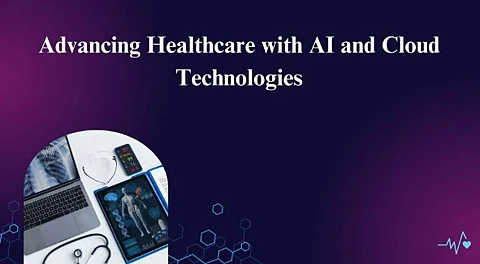

Exploring how artificial intelligence (AI) and cloud technologies are transforming healthcare, Sushil Prabhu Prabhakaran brings attention to innovative solutions that improve clinical decisions, streamline workflows, and enhance patient care. His work underscores the exciting possibilities of modern technology in creating a more efficient and accessible healthcare system.
AI has brought significant changes to how healthcare professionals make decisions. Tools like Clinical Decision Support Systems (CDSS) are now integrated into digital patient records, analyzing vast amounts of data to provide timely recommendations. This technology helps doctors make more informed decisions by recognizing patterns and predicting outcomes based on individual patient data.
Predictive analytics further supports healthcare providers by forecasting potential health risks, enabling early interventions. By examining a combination of medical history, vital signs, and other factors, these tools offer critical insights that can prevent complications and improve long-term patient outcomes.
AI’s role in diagnostics is reshaping healthcare, particularly in medical imaging. Advanced algorithms can quickly analyze X-rays, MRIs, and CT scans, assisting radiologists in identifying abnormalities with greater precision and efficiency.
Beyond imaging, AI has made strides in genomic research and drug discovery. By processing vast datasets, it identifies genetic markers for diseases, predicts how patients will respond to medications, and even suggests new uses for existing drugs. These advancements are accelerating the development of personalized treatment plans and reducing the time and cost associated with traditional drug research.
Cloud computing underpins many of these breakthroughs, providing the scalability and computing power required to manage massive amounts of healthcare data. Cloud-based systems are improving patient care by streamlining operations, from appointment scheduling to post-treatment follow-ups. These systems also enable seamless data sharing across departments.
In clinical research, cloud platforms are transforming how trials are managed. By enabling real-time data collection and automated analysis, they make it easier to monitor progress, ensure regulatory compliance, and generate reliable results.
Telemedicine is another area where technology is making a significant impact. Cloud-enabled platforms support remote consultations, secure communication, and real-time monitoring of patients through connected devices.
AI-powered features, such as automated scheduling and patient triage, are enhancing the efficiency of these platforms. With the ability to quickly scale during times of high demand, such as during a public health crisis, telemedicine ensures that more patients receive timely care.
As healthcare increasingly relies on digital technologies, data security and compliance are essential. Robust frameworks ensure that sensitive patient information is protected through advanced encryption and strict access controls. Interoperability standards help different systems communicate effectively while maintaining data privacy and regulatory compliance.
Emerging technologies like federated learning and edge computing are paving the way for even greater advancements. Federated learning allows institutions to work together to improve AI models without sharing sensitive patient data, addressing privacy concerns. Edge computing, meanwhile, enables real-time data processing closer to where care is delivered, reducing delays and improving responsiveness in critical situations.
Additionally, explainable AI is making AI systems more transparent, allowing healthcare professionals to better understand and trust the recommendations provided by these technologies. This fosters greater adoption and integration of AI into everyday medical practice.
In conclusion, the integration of AI and cloud technologies is ushering in a transformative era for healthcare, driving efficiency and elevating the quality of care. As Sushil Prabhu Prabhakaran highlights, balancing innovation with privacy and ethical considerations is essential for ensuring advancements prioritize patient well-being.
The future of healthcare lies in embracing these technological innovations while keeping them accessible, secure, and patient-centered. With sustained progress, the potential to revolutionize care delivery is boundless, marking an exciting chapter in the evolution of modern medicine.
